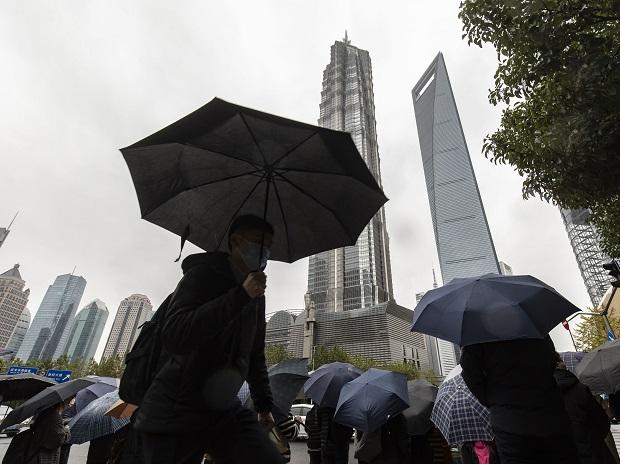[ad_1]
China’s abrupt reversal of its Covid Zero policy pushed economic activity — its service sector in particular — to the slowest pace since February 2020, as the virus swept through major cities and prompted people to stay home and businesses to shut.
The official manufacturing purchasing managers index fell to 47 this month from November’s 48, the National Bureau of Statistics said Saturday. That was worse than an estimate of 47.8 in a Bloomberg survey of economists.
The non-manufacturing index, which measures activity in the construction and services sectors, declined to 41.6 from 46.7 in November, lower than the consensus estimate of 45. A reading below 50 indicates contraction, while anything above suggests expansion. Both readings were the lowest level since February 2020.
The services PMI, a sub-index of the non-manufacturing gauge, fell to 39.4 from 45.1 in November. That’s the lowest reading since February 2020 and the fourth consecutive month that it has contracted.

The December data reflects the month when the world’s second-largest economy finally ditched its long-held Covid Zero policy in an abrupt reversal. The continuous spread of Covid may create more snags for the economy through the first quarter of 2023, with a likely travel rush during the upcoming Lunar New Year holiday potentially exacerbating the situation.
China’s economy was faltering before the pivot from Covid Zero as curbs to prevent the spread of infection depressed economic activity and kept the country isolated from the rest of the world. A persistent property market slump, sluggish consumer demand and waning overseas appetite for Chinese goods contributed to the downturn, and gross domestic product is likely to expand just 3% in 2022.
High-frequency data for December suggested economic activity was pushed off a cliff as surging cases led people to stay home and avoid shops, while factory production was capped. There was even some disruption to government operations.
“Manufacturing and consumption both declined as Covid situation brought relatively big impact to enterprises, personnel on duty and logistics,” the statistics bureau said in a statement accompanying the data release.
Manufacturing PMI gauges measuring output, new orders and employment all contracted in December at a faster pace than the month before. A sub-index measuring suppliers’ delivery times also fell further, a sign of supply disruptions.
What Bloomberg Economics Says…
Given surging infections, the economy is in for a rough time in the next few months before the reopening boost starts to kick in — likely in late February or March after the initial wave has crested. The data reinforce our view that further policy support will be forthcoming, with the People’s Bank of China likely to cut rates in 1Q23 to help stabilize the economy.
— David Qu
Economists see an increasing possibility for a faster and stronger rebound later in 2023. After the likely slow start in the January-to-March period, growth is projected to pick up to 4.8% for the year, according to the median estimate of economists surveyed by Bloomberg.
[ad_2]
Source link



